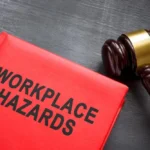Have you recently been involved in an automobile accident?
If so, you deserve compensation to help you recover from any injuries you experienced, as well as any property damages you sustained.
As one of 12 no-fault states in the U.S., Florida requires all drivers to carry personal injury protection (PIP) coverage. This policy will kick in to quickly cover medical expenses, lost wages, and death benefits for affected drivers. However, there are certain elements that it does not cover.
In that case, you may need to know how to deal with at fault driver’s insurance company. Working with this point of contact can help you recoup the full extent of your losses so you can get back on the road in confidence.
Not sure how to handle this next step? Today, we’re breaking it all down and answering a few common questions about how to navigate your upcoming conversation.
Why Shouldn’t You Communicate Directly With Their Insurer?
As soon as you’re safely removed from the car accident, one of the first things you need to do is contact your personal car insurance company to report what happened. Once that’s done, your next inclination might be to call the at-fault driver’s insurance company.
After all, while PIP does help cover most accident-related expenses, there are certain costs that it does not include, such as:
– Damages to your car or other property
– Claims related to pain and suffering
– Bodily injuries suffered by persons in the other vehicle
– Bodily injuries of other adult passengers in your car (as long as they have their own PIP policy)
If you need help covering any of these concerns, you may naturally want to call the other driver’s insurance company, especially if their actions were responsible for causing the accident. However, this isn’t typically a smart move, and here’s why.
You aren’t obligated to call this office or speak to the other driver’s insurance carrier at all. They aren’t looking out for you and haven’t been hired to protect your best interests. Rather, they are interested in protecting their paying client only.
At the same time, they’re also looking out for their own interests. They aren’t in the business of losing money and will not actively look for ways to make sure you receive high-paying settlement offers.
Instead, the at-fault driver’s insurance company will look for ways to undermine your account of the accident and lessen the amount that their client has to pay. Let’s take a look at a few of the common tactics they might use.
Denying the Claim
If the insurance company has any grounds for dismissing or denying liability on your car accident claim, they will do so. They know that most drivers aren’t insurance adjusters, and they will use their industry knowledge and experience to their advantage.
One of the first negotiating tactics they’ll use is to get you to talk about the accident as much as possible. They may even ask to record you, usually by explaining that recording your conversation will speed up the third-party insurance claims process.
Then, as you speak, you may include details that could harm your credibility or cast doubt on who really caused the collision. Without even realizing it, you could talk yourself into a corner and undermine your whole case.
Later, the insurance adjuster you speak to may try to use your own words against you. Ultimately, their account of the events will come down against yours, regardless of what really happened. They know what to listen for and how to pick up on key details, even if you didn’t mean something exactly the way it sounded.
In many cases, they’ll find something you said and twist it so it sounds like their client wasn’t at fault for the injuries or property damage you experienced. If this happens, they could dismiss your claim in its entirety.
Spotting Inconsistencies
When reviewing your recorded statement, the insurance company will look for any way possible to question your integrity or your recollection of the events. One way they’ll do so is by comparing your verbally recorded statement to the statement that you gave the police right after the accident occurred.
In the immediate aftermath, you may have missed or skipped details that were pertinent to your case. For this reason, police reports are often limited in detail, especially from the drivers directly involved. Instead, most of the story comes from the witnesses who saw the collision occur.
If the adjuster notices that these two statements contain inconsistent or conflicting information, they may deny your claim. Of course, this decision doesn’t take into account the fact that you might not tell the story exactly the same each time and that minor omissions are human nature.
Deliberately Confusing You
If it seems like the adjuster is asking you purposefully confusing questions, it’s not just in your mind. In many cases, they will use this tactic to trip you up on your words or nudge you into agreeing with a statement that you don’t fully support.
If you become frustrated enough with the conversation, you might say something along the lines of, “Sure, I guess” to cut the adjuster off and bring the phone call to a close. Yet, by uttering that short sentence, you could change the fate of your claim forever.
Negotiating a Lower Settlement
Even if the at-fault driver’s insurance company agrees to a portion of your story, they will usually fight to lower the total amount that their client has to pay. Again, they know that you aren’t likely to be well-versed in this industry, so you may be willing to take lowball offers, thinking they’re sizeable enough to cover your losses.
What Do You Do If Their Insurer Contacts You?
You’re trying to heal and recover, and suddenly you see that you’re getting a call from the other driver’s insurance company. What now?
In this case, it’s best to let the call go to your voicemail. Do not answer it, and do not call the number back. Instead, speak to a car accident attorney who can contact this party and handle all negotiations for you.
If you do answer the call and you’re not sure what to say, you can follow the tips below!
What Are Some Tips for Responding to Their Insurance Adjuster’s Questions?
At some point, you might find that you have to interface with the insurance adjuster, no matter how you try to avoid it. If this happens, it’s best to practice prudence. Be polite and tactful throughout the conversation, extending the same amount of respect to them as you’d expect them to give you.
However, keep in mind that it’s best to keep your answers brief and vague, replying with “yes” or “no” answers wherever possible. If you aren’t 100% sure about something, then do not repeat it. It’s better to answer by saying “I don’t know” than to speculate incorrectly.
As much as you can, avoid sharing stories about yourself or divulging details about what occurred before, during, or after the accident. Stick to sharing irrefutable facts only, such as the make and model of your vehicle.
In other words, keep it short and simple! If they press more, direct them to speak to your lawyer and kindly deny sharing any more information. We also suggest politely declining if they ask your permission to record the conversation.
How Do You Get the Insurer to Treat You Fairly?
As mentioned, respect is the name of the game. If you can be calm and kind to the adjuster, you’re more likely to have a civil conversation. However, this isn’t always easy.
Conversations about car accident claims can become heated and highly emotional. You might feel the need to place blame somewhere, and the adjuster might seem like an easy target. Before and after the conversation, take a deep breath and try to be as rational as you can.
As you speak, keep a journal of everything that you share, and be ready to give those details to your legal team when the conversation is finished. If the adjuster wants to discuss more than the basic facts about your case, then you are within your rights to request additional representation.
For instance, it might make you feel more comfortable to have your own insurance adjuster on the line with you. In addition, it’s also wise to have your legal counsel by your side, so they can make the call for you or help you discuss the details of your case.
How to Deal With At Fault Driver’s Insurance Company? Let Us Do It!
When you’re recovering from a car accident, the last thing you want to do is worry about making an uncomfortable phone call. You also shouldn’t have to worry about whether or not you’re saying something that could be used against you in the future.
Thankfully, you don’t have to do either of these things. Instead, hire us to take care of this step! As your trusted partner, we know how to deal with at fault driver’s insurance company, and we’ll protect your best interests at every turn.
To learn more about how we can help, contact us to schedule a free, confidential consultation today!





